
**Major spoilers alert**
Waah! Ermagerd! I have time for a blog post!! Life is good!
I have major, MAJOR news for y’all. First, I finished all my school work (YEEE!). So that hopefully means I have graduated with my engineering degree. (I actually don’t know yet because final grades are not out and it is totally possible that I failed a class. I mean, the possibility is slight. Like, less than 10 percent. But not 0 percent).
But who cares about that, the more important thing is I GOT A JOB!!! It’s the job I wanted with the company I wanted which is SO WEIRD. I never get what I want. So I’m trying to relax and enjoy the change and not self-sabotage inside my head. (Seriously, in there I’m thinking how did I fool these people into hiring me?) It’s an exciting time. I’m moving again. It’s the holidays. I feel unhinged.
Anyway, in the middle of all this, I finally carved out some time to go see Eternals all by myself today. (This is a hobby my brother indulges in from time to time. I never understood why until now.) Folks, if there’s one thing I will tell you, DO NOT go to a movie the week it comes out. Ever. Like, not before the pandemic, during the pandemic, after the pandemic…regardless of pandemic, don’t go to movies when they just come out. I absolutely hate the crowds that show up those weeks. I went and saw Knives Out the day it came out. I ended up sitting next to some stupid white girl who was raised in a barn and wouldn’t shut up the entire time. Like, was just incapable. And not in like a “she’s disabled” way, but in a “genuinely does not care about other people’s experiences” way. I made the mistake of going to see Spiderman: No Way Home last week. (This was a mistake on two accounts. First, that movie is mediocre at best. It’s 2 hours of fan service. The conflict is so contrived, it’s obvious the writers just needed an excuse to bring all the characters together. And the end relies too heavily on plots that happened in the past for all gut-punching emotions. Leonie was not impressed.) But then the stupid audience! Unredeemable! They clapped for everything, everything! The trailers! The kisses! Every! Single! Character! The deaths! The saves! Too much clapping!
Maybe I’m just turning into an old lady. I mean, it’s true that I’m quite at the ceiling of my twenties now. I can be very unforgiving to twenty-year-olds. But there is just something relaxing about having the top entire two rows to myself to stretch, take up three seats, put my feet up, laugh to myself, cry if I need to. It’s fantastic.
That being said, a lot of people have knocked this movie. I don’t know why. They must be those dumb twenty-year-olds who thought No Way Home was good. I think it is a very different film from the rest of the Marvel movies, but in the best way. I wonder if it’s because of the screenplay was done by Academy Award winner, Chloe Zhao. I feel like this story just comes from different roots than the average superhero movie.
The characters mostly come from classical Greek and Roman mythology, and it needed to feel like a myth. The Eternals are supposed to be ancient beings who have been on earth for 7,000 years. As such, I feel like we got a lot of screentime with people for whom myths matter. We got to see the brown people of Mesopotamia, Babylon, and Tenochtitlan. People before paper, before writing, when oral tradition was the way information was passed down. Reminds me a little of The Old Guard, but the idea of longevity was portrayed very differently in that movie.
Stan Lee is no stranger to stories about collectives. In every Avengers movie, I always felt that what bumped the film up a level was the way individuals in a group were allowed to be complicated. In groups, people who agree might agree for different reasons. People can have allies, personalities they naturally gravitate toward, people they can be annoyed by constantly, where natural antagonism grows, communication gaps fester, and problems arise. I like that Lee seems to know how groups actually work. In the Protestant Western world, I feel sometimes that groupthink has replaced actually talking through group dynamics. Lee lets his characters do this, and it’s a messy process (See Captain America: Civil War). It requires revealing secrets and motives, pointing out weaknesses, pointing out biases. It is by no means easy. This quality plays out on a huge scale in Eternals. The characters have centuries to become proper archetypes, to sink into roles like “leader”, “oddball”, “smartass”; to grow resentful, to have priorities.
The first few scenes of the movie made me surprisingly emotional. It could just be because somebody thought these ancient brown people were worth fighting for. The image of demi-gods finding something worthy in humanity to protect is kinda moving, honestly. Humans themselves are willing to renounce each other again and again. They’ll do it several times a day. But a bunch of robot-warriors decided we were precious enough to fight their commander for. That’s really sweet.
It was not lost on me how much Hinduism was portrayed throughout the movie. As a Hindu myself, I’ve always felt like Hollywood fucked up big time with its portrayals of anything from The Subcontinent. We usually got some jumped-up pseudo-Bollywood filmi stuff, or we got repressed, sad Indian girl/boy trapped by rigid and unyielding first-generation parents. One of the many reasons I liked the mythology route they decided to take is that in some ways, we see more of essential Hinduism. For example, there is both a Hindu marriage ceremony and a Hindu funeral in this movie. We usually NEVER get to see these rituals in a Hollywood movie. They’re some of the scenes that most tie stories together in Bollywood, the milestones in a life. I don’t think it’s a coincidence either that Hindus believe in a continuation of life after death, that the religion includes cycles and breaking cycles. The Eternals have lived millions of lives, destroying planets in each one, and are now want to leave that way of life behind.
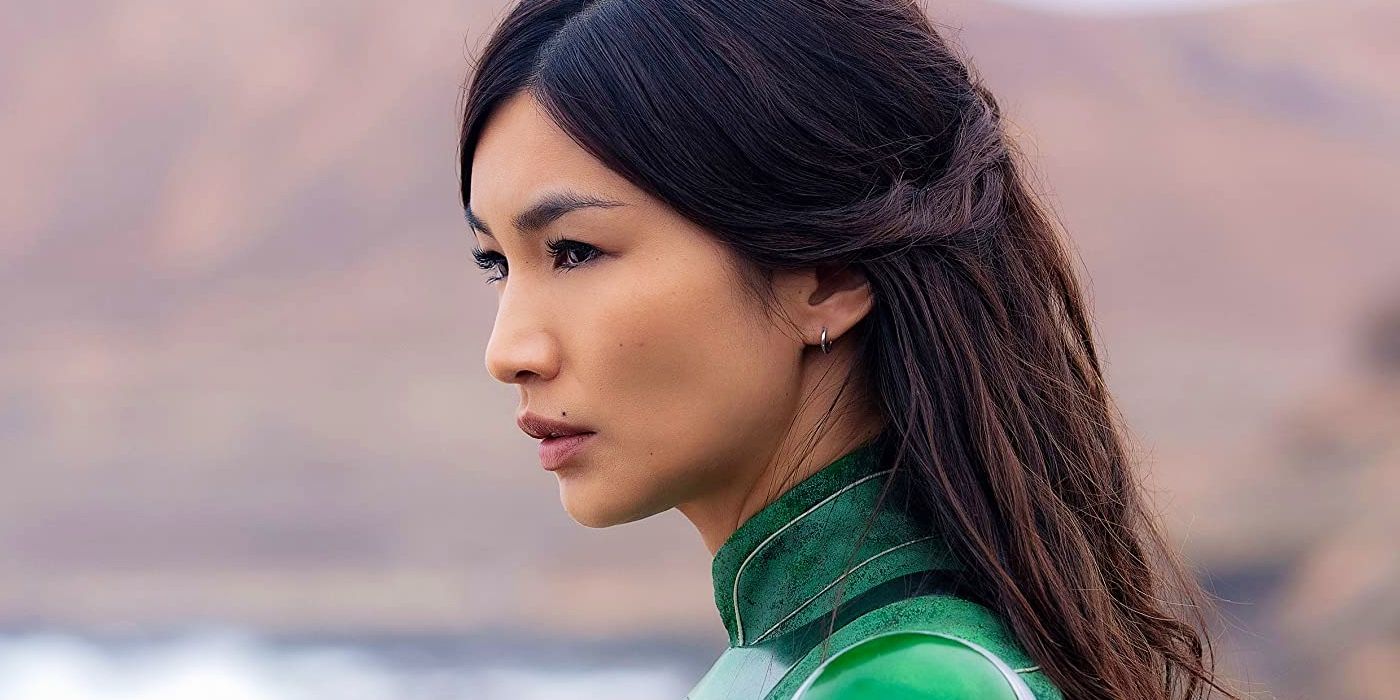
I think some of the cast is a little typecast, but in a way that complements the roles. Gemma Chan is Sersi, the one with the cool ability to transmute inanimate objects. After watching her in Crazy, Rich Asians, I feel like there’s a character type that Chan gravitates toward. It’s usually the generous, kind, peak-of-femininity, deserving-of-more-than-she-gets character. Chan has this way of moving with such deliberation. She has this presence that I feel will rival Cate Blanchett’s one day. I think the choice to have her move slowly throughout most of the movie is so brilliant. For all their flash and might, the faster characters have very obvious weaknesses. Sersi holds on to hope even in the darkest of times. It is clear to me why Ajak chose her, but it is also the more radical decision to put humanity in the hands of a believer instead of a warrior.
Angelina Jolie, after her years of portraying badass bitches on the big screen, is also the perfect Thena. There is a commentary on disability going on between Thena and Lauren Ridloff’s character, Makkari. Among us mere humans, being deaf is considered a disability, one that, until just the last few decades, could spell significant obstacles to obtaining a job (and really, still does in a lot of cases). Among the Eternals, who speak every language ever, including Sign Language, Makkari is definitely up there with the badasses (it is so satisfying to watch her beat Ikarus’s ass in the final battle). Thena’s disability, which is more specific to Eternals, makes her forget who she is and attack her own friends. Among the Eternals, this is considered far more debilitating, which makes it more believable that they’ve been alive for thousands of years. She makes an interesting foil to Makkari in this way.
I love the ironies that were dealt during the movie. The obvious one is Ikarus. Richard Madden plays butt-hurt pretty boy, Ikarus, who is mad that Ajak didn’t pick him to be head honcho. After pledging loyalty to her, he then betrays and kills her when she says she will not destroy earth in accordance with Arimesh’s plans. Ikarus, having little faith in anything other than himself, is shocked when Sersi pulls through and freezes the emergence. His lack of flexibility leads him to commit suicide by flying into the sun, thus completing the tale the ancient Greeks told.
The other irony we see is in Sprite’s character. Sprite constantly curses her own existence because she is a child for all of eternity. When Ikarus defects from the group, she does the most immature thing possible and decides to join him because she’s in love with him. As Sersi does her best to stop humanity from being pulverized, Sprite walks up to her and literally starts monologuing about how she envies her. Envies her! That was why she decided to join Ikarus. Because she envies Sersi. I guess I learned a lot in that moment. Namely, don’t let your pettiness let you look like an idiot. (I’m terrible at this myself. They do say characters that annoy you probably reflect some part of yourself.)
Lastly, I love that we get to hear Hindi and Arabic spoken out loud in this film. If you didn’t know, I think those two languages are the most beautiful in the world. I love that it is used in really goofy, everyday contexts, like telling your valet to go home. In general, I loved the use of languages in this film.
All in all, I would say Eternals is a gem and takes a step in a direction I didn’t think Marvel would go, but I’m glad it did. In its use of various communication styles, it rivals Dune, but serves a very different purpose. Where Dune set the groundwork for a sort of space-Lawrence of Arabia, Eternals gave me a more organic, hopeful vibe. The ideas are simpler, giving us a sort of messy kaleidoscope. But I think every pantheon in the history of mythological gods has been exactly that.
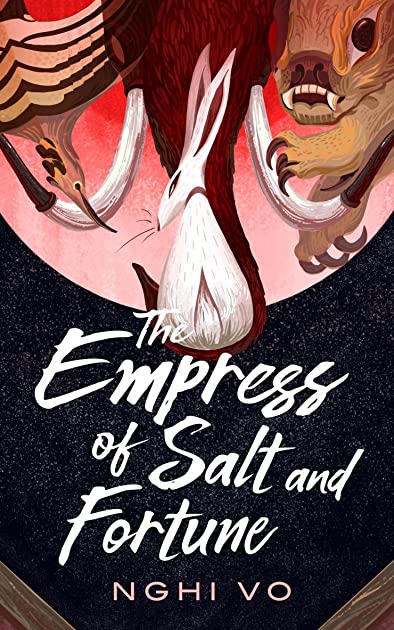



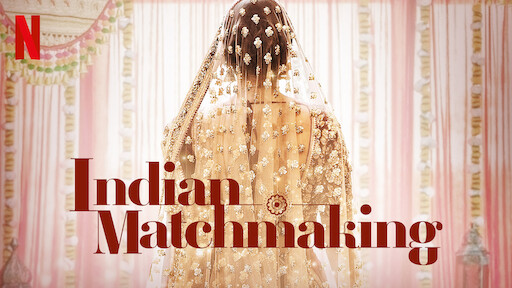 By now, I’m sure you’re all aware of the show Indian Matchmaking on Netflix. The show is being called “divisive” and is said to show a “skewed perspective” on Indian culture according to reviewers +that I Googled like 10 minutes ago. I guess I’m not surprised, but I think those people are kind of missing the radical potential of this show. As always, this review has got spoilers, so if you want to watch the show, do that first!
By now, I’m sure you’re all aware of the show Indian Matchmaking on Netflix. The show is being called “divisive” and is said to show a “skewed perspective” on Indian culture according to reviewers +that I Googled like 10 minutes ago. I guess I’m not surprised, but I think those people are kind of missing the radical potential of this show. As always, this review has got spoilers, so if you want to watch the show, do that first!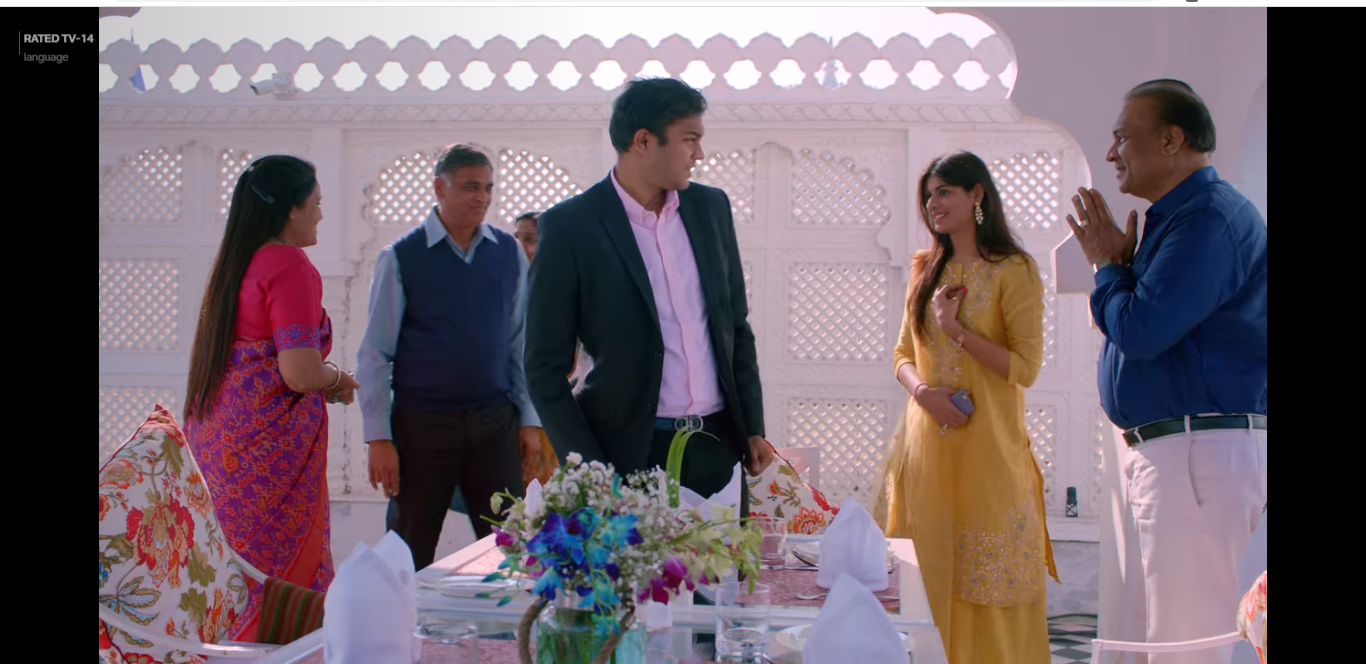
 This is a sad week, y’all. The Universe has taken both Irrfan Khan and Rishi Kapoor from us within two days. (I am slightly consoled, though, that neither died of Covid). I imagine they would get along with Omar Shariff in the afterlife, if they met.
This is a sad week, y’all. The Universe has taken both Irrfan Khan and Rishi Kapoor from us within two days. (I am slightly consoled, though, that neither died of Covid). I imagine they would get along with Omar Shariff in the afterlife, if they met.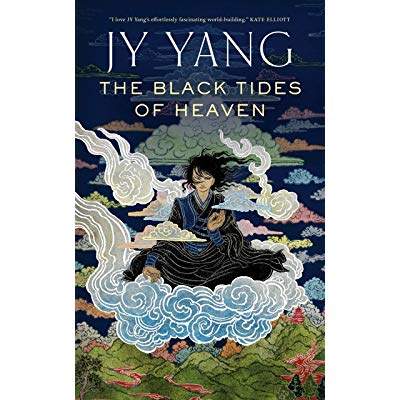 So my partner recently handed me the Tensorate series by Jy Yang and…Wow! That was a great decision.
So my partner recently handed me the Tensorate series by Jy Yang and…Wow! That was a great decision. So I recently read Wordslut (2019) by Amanda Montell. I have mixed feelings about the book. On the one hand, the writing is very good. Montell has a great sense of humor and keeps my attention throughout the entire book. This is an impressive feat–my attention span is pretty short and my next blog post would have been 6 months from now if it had not been interesting. But after reading through the whole thing, I think it also has some glaring shortcomings.
So I recently read Wordslut (2019) by Amanda Montell. I have mixed feelings about the book. On the one hand, the writing is very good. Montell has a great sense of humor and keeps my attention throughout the entire book. This is an impressive feat–my attention span is pretty short and my next blog post would have been 6 months from now if it had not been interesting. But after reading through the whole thing, I think it also has some glaring shortcomings.